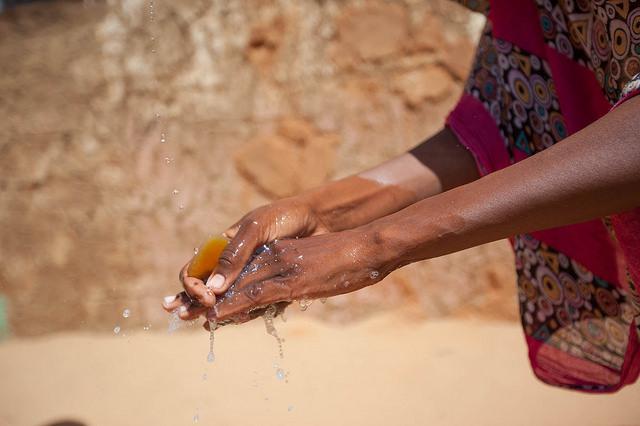5th Emergency Environmental Health Conference

Credit: Hamid Abdulsalam,UNAMID
The 5th Emergency Environmental Health Forum, which took place on 17th and 18th December 2012, focussed on public health promotion in water and sanitation programmes in emergency settings. The Forum was co-sponsored by Oxfam, International Federation of Red Cross and Red Crescent Societies (IFRC), International Rescue Committee (IRC), Action Contre La Faim (ACF), Médecins Sans Frontières (MSF), CARE International, the United Nations Refugee Agency (UNHCR) and the United Nations Children’s Fund (UNICEF) and was supported by the SHARE Research Consortium. The Forum was followed by a one day event focussed on handwashing in emergency settings.
A full Conference Report of proceedings is available here. Please see below for a schedule with links to powerpoint presentations.
Monday 17th December: 1st Session - Opening
- Keynote speech (Prof. Sandy Cairncross, LSHTM)
- Effective use: A metric for assessing the potential impact of household water treatment system intervention (Daniele Lantagne, LSHTM)
Monday 17th December: 2nd Session - Handwashing
- Behaviour change in emergency contexts: Handwashing promotion in post-earthquake Haiti and drought response in Borena Zone, Ethiopia (Nadja Contzen, EAWAG)
- Identifying the determinants of handwashing behaviour in three refugee populations in Ethiopia, Kenya and Thailand (Penninah Mathenge, IRC and Dorothy Pepra, LSHTM)
- Accelerated hygiene promotion (AHP) through accelerated alternative basic education (AABE) in Somalia (Melchizedek Mailile, NRC)
Monday 17th December: 3rd Session - Women
- Menstruation: the Ultimate Taboo (Sarah House, Independent Consultant)
- Menstruation Hygiene Management in Emergencies (Timothy Hayden, UNICEF and Louise Maule, UNICEF)
- Women’s WASH Platforms (WWP) in Bangladesh (Golam Morshed, Oxfam)
Monday 17th December: 4th Session - Community-Led Total Sanitation (CLTS)
- Community-Led Total Sanitation in Emergency and Post-Emergency Contexts (Frank Greaves, Tearfund)
Tuesday 18th December: 1st Session - Cholera
- Haitian population facing Cholera for the first time: Awareness and applied anthropology (Yasmin Al Kourdi, MSF)
- Cholera response and prevention lessons learned: Chad, Cameroon and Zimbabwe (Jean Lapegue, ACF)
- The development of onsite wastewater treatment in Cholera Treatment Centres (Jeff Fesselet, MSF)
Tuesday 18th December: 2nd Session - Technology
- Hygiene promotion in urban context and the role of new technology. An experience from the earthquake response in Haiti (Sharon Reader, British Red Cross)
- mWASH - Increasing beneficiary reach through cost effective mobile phone based integrated WASH interventions in Somalia (Jesse Kinyanjui, Oxfam)
- Using modern mapping techniques to identify priority areas for WASH intervention during a typhoid outbreak in Harare, Zimbabwe (Fabienne Nackers, MSF)
Tuesday 18th December: 3rd Session - Nutrition
- Does village water supply affect children’s length of stay in therapeutic feeding centres in Tahoua region, Niger (Peter Maes, MSF)
- Integrating WASH and malnutrition in drought and food crisis: What, why and how based on in-depth research in Turkana, Kenya (Jesse Kinyanjui, Oxfam)
Tuesday 18th December: Further research questions and open forum (see Forum Report)
